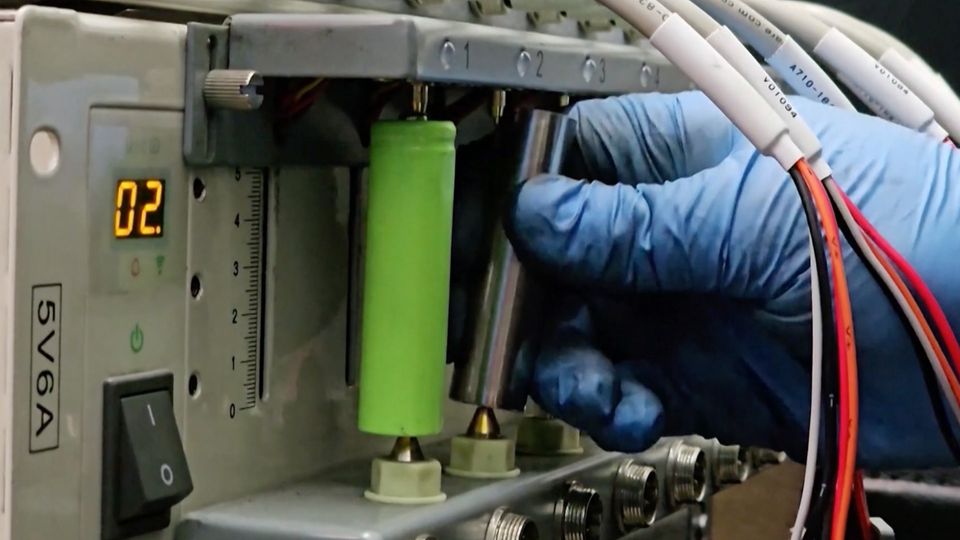China is flooding the world market with cheap electric cars. To protect the domestic car industry, the European Union is preparing tariffs on imports from the Far East. A trade war could be looming, even if the EU wants to avoid an escalation.
The tone in trade relations between the EU and China is becoming more tense: Brussels is preparing to increase tariffs on Chinese electric cars, which is expected in the coming weeks. The EU wants to protect its own car industry from competition from China – and at the same time avoid a trade war with Beijing.
What does the EU accuse China of?
Brussels suspects that Beijing is paying excessive subsidies to its car manufacturers, thereby giving them a competitive advantage. Commission President Ursula von der Leyen therefore launched an investigation in September to determine whether China is violating the rules of the World Trade Organization (WTO). The Commission must now complete its investigation by the beginning of June and has until July 4 to decide on the imposition of punitive tariffs.
The world markets are being flooded with “cheaper Chinese electric cars,” said von der Leyen. Chinese suppliers such as BYD and Saic have more than quadrupled their share of the European electric car market in the past two years. According to the analysis company Jato Dynamics, it is now at 7.8 percent.
How high could the punitive tariffs be?
Observers assume that the Commission will initially increase the tariffs from the current 10 percent to 15 to 30 percent. This assessment is also reached by researchers from the Rhodium Group, who also monitor the Chinese car market. The EU’s reaction is therefore likely to be much less drastic than in the USA, which, among other things, increased the tariff rate for electric cars from 25 to 100 percent in mid-May.
Commission President von der Leyen made it clear that the EU would respond in a “much more targeted” manner. “I can guarantee that the level of tariffs we would impose would correspond to the level of damage,” she said in a debate among the lead candidates for the European elections.
Unlike Washington, the conflict in Brussels must “remain an economic issue, not a political one,” explains Elvire Fabry, a researcher for global trade policy at the Brussels Jacques Delors Institute. The aim is not to seal off the European market, “but to give European manufacturers a breathing space so that they can improve their performance.”
What immediate effects are expected?
The tariffs are unlikely to push suppliers like BYD out of the European market. The Chinese brands sometimes sell their cars in Europe for twice as much as on the home market and thus significantly above their production costs, as a Rhodium study shows. “Even with a tariff rate of 30 percent, many Chinese electric models would still achieve a high profit margin in the EU,” the researchers write.

Batteries made from garbage? Start-up wants to extract “black gold” for electric cars from old car tires
02:23mins
Companies such as BMW and Tesla, which export cars built in China to Europe without benefiting from Chinese state aid, are likely to be hit much harder. According to the researchers, the tariffs could destroy their business model.
What does the German car industry think about this?
The Association of the Automotive Industry (VDA) warned of an escalation of the trade conflict, which would particularly affect German manufacturers because, according to the association, they export around 300,000 vehicles to China every year. “Countervailing duties on electric cars imported from China are not suitable for strengthening the competitiveness of the European automotive industry,” explained a VDA spokesman.
Chancellor Olaf Scholz has also repeatedly taken a stand against punitive tariffs, and he recently received support from Sweden, for example. France in particular, whose car manufacturers have little presence in China, is pushing for a tougher approach towards Beijing. In order to overturn tariffs set by the Commission, a majority of at least 15 member states, which together make up at least 65 percent of the EU population, would be needed.
How does China react?
The Chinese Chamber of Commerce in Brussels accused the Commission of “politically motivated” the investigation into the car manufacturers. It is undesirable for the economy to accept a tit-for-tat approach. However, China will be “forced to take a series of retaliatory measures”.
Jacob Gunter, an economist at the Berlin Mercator Institute for China Studies, also expects a “fairly sharp reaction”. European punitive tariffs would be an “attack on one of the key industries in which China has caught up technologically and even taken the lead,” explains Gunter. In economic relations with Beijing, “something of this magnitude has never happened before.”
Source: Stern




